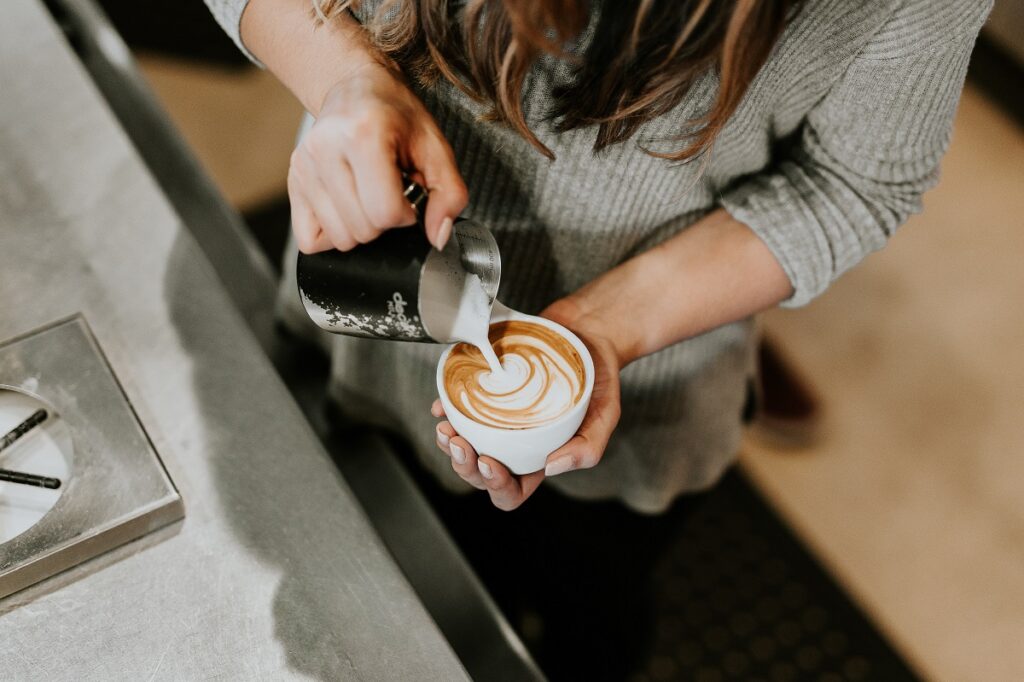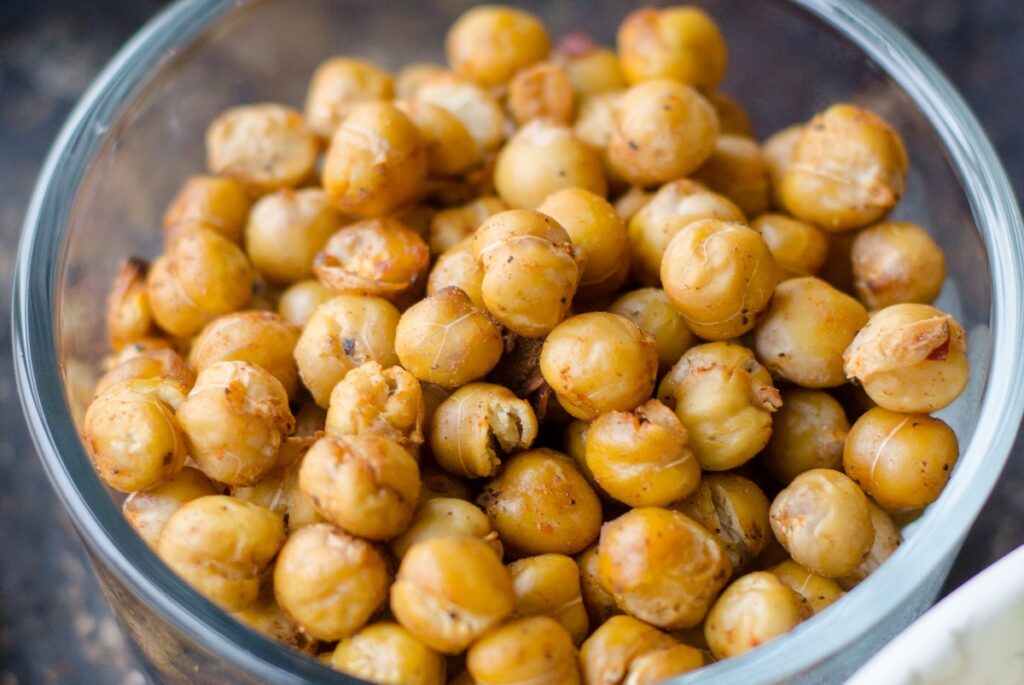Israeli startup cracks the code to produce non-dairy barista-style drinks
If you want a frothier, creamier coffee, try using chickpeas.
Israeli food tech startup ChickP says it has cracked the code on a high foaming creamy milk replacer for dairy-free cappuccinos, using milk made from chickpea ingredients.
The company announced last week the introduction of protein isolates (highly concentrated and refined protein fractions). These protein isolates are extracted from the chickpea in powder form, removing bitterness and various non-nutritional elements and customized for barista-style coffee drinks. ChickP has also developed a chickpea-based creamer that contains nine essential amino acids and also happens to be nutritious and tasty.

The solution has been designed to serve those working in the dairy replacement space to create compelling milk alternatives specifically for creamy beverages like coffee, the company said.
According to The Good Food Institute, dairy-free milk represents 35 percent of plant-based food sales growth in the US market, at $2.5 billion in annual sales. Dollar sales of plant-based milk grew 20 percent in the past year, and 27 percent over the past two years. Plant-based milk is a major entry point for households trying products across plant-based categories.
“We have developed a recipe with our isolate ingredients for customers who wish to make non-dairy beverages,” ChickP CEO Liat Lachish Levy tells NoCamels, “Today, the non-dairy creamers available in the market are mainly based on soy and recently rice, almond, and oat. The latter ones have a very low percentage of protein. ChickP’s protein is very suitable for consumers that wish to have a non-allergenic and highly nutritious option since chickpeas are considered non-allergenic with a complete nutritional profile. In addition, it also provides good solubility for the low pH of coffee.”

Barista drinks can demonstrate how versatile ChickP is and how it can solve the challenges of making better and tastier plant-based products, Lachish Levy explains.
Many plant proteins on the market have bitter or off-flavors, low protein content, and grainy or chalky textures. Even with added sugar, or flavor modifiers, the results lack the appearance and characteristics of real, creamy milk, ChickP said.
“Our ChickP protein ticks all the boxes,” says Lachish Levy. “It’s packed with highly nutritious complete protein containing all nine essential amino acids. But more than that, it has a rich texture, and provides smooth, stable full foaming, with a white color, perfect for showcasing the most artful barista’s skills.”
Sign up for our free weekly newsletter
SubscribeThe frothiness of chickpeas is not a brand new discovery, according to vegan media brand VegNews, which cites aquafaba, the brine leftover in a can of chickpeas that has been used as a fluffy egg white replacement for years. ChickP uses its patented technology to extract neutral-taste protein isolates in powder form, as mentioned above. The neutral flavor mitigates the need for sugar or flavor additives and enables beverage formulators to significantly shorten ingredients.
The ingredient also demonstrates excellent foaming capabilities due to its high solubility and smooth texture, the company says. The model plant-based barista milk contains 3 percent protein. Existing vegetable-origin barista products typically contain less than 1 percent protein.

The chickpea S930 G910 isolates are “the most refined form of protein” containing a high concentration of protein with the advantage of color, flavor, and functional properties, she says. This makes them “an ideal raw ingredient,” noting that the company is looking into using them for protein bars, hard cheese, yogurts, and egg replacements.
The company has many new projects worldwide, both for non-dairy applications such as cheese analogs and yogurts as well as meat/fish alternative products, egg replacer for desserts and bakeries and many more, according to Lachish Levy. “We are confident that by the beginning of 2023 we will see many new products available for the consumers on a global base,” she says.
The challenges of plant-based products
ChickP is currently developing over 20 plant-based applications with leading food and beverage companies with its pure ChickP protein, Lachish Levy tells NoCamels.
“Our customers turned to us to solve major challenges of plant-based products and we were able to provide comprehensive solutions in terms of flavor, complete nutrition profile, and functionality,” she says. “Consumers want a holistic, better-for-you, yet full flavor experience.”

“Our technologists took full advantage of our new state-of-the-art application lab to overcome technical challenges in creating creamy, dairy-free ‘milk’ for the perfect cappuccino,” Lachish Levy says, “ChickP has overcome challenges and hurdles that many startups face, including upscaling manufacturing increase volumes significantly and meeting customer demand.”
Chickpeas are a great source of plant-based protein. A one-cup (164-gram) serving provides about 14.5 grams of protein, which is comparable to the protein content of similar foods like black beans and lentils, according to Healthline.
Related posts

Resilient And Nutritious New Plant-Based Milk Aims To Make A Splash

Chocolate From Cultivated Cocoa Comes Without Environmental Toll

Plastic Fantastic: Startup Takes PVC Back To Its Crude Oil Roots




Facebook comments